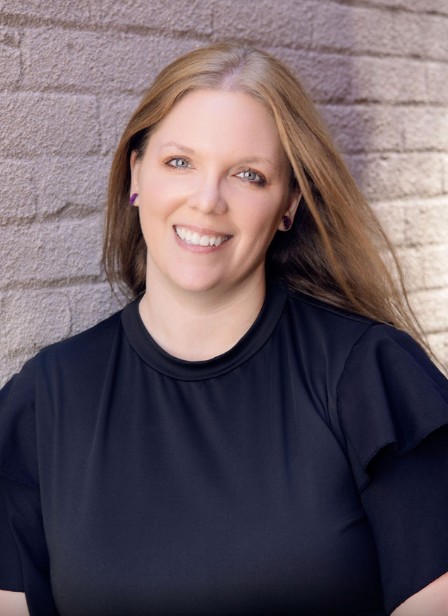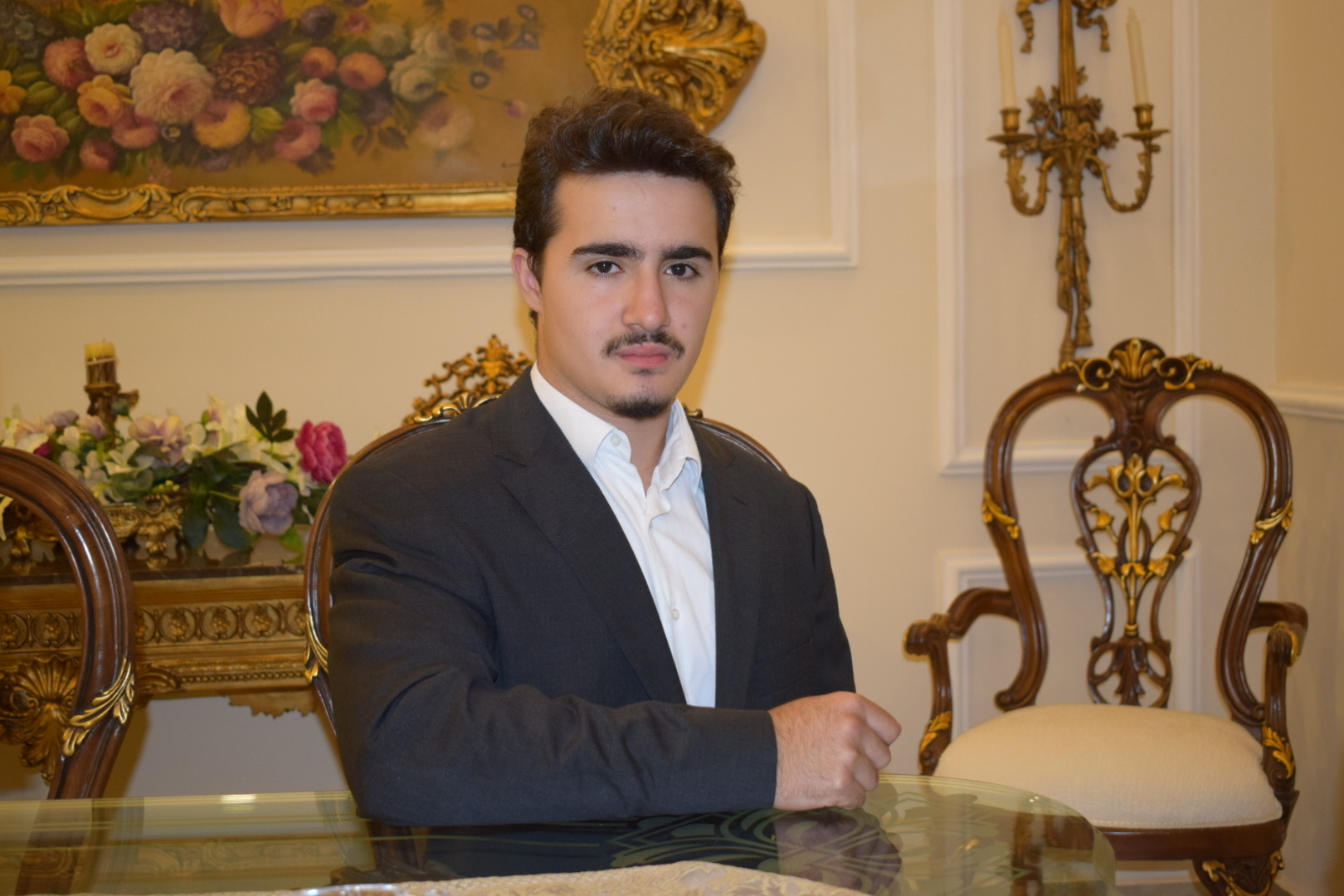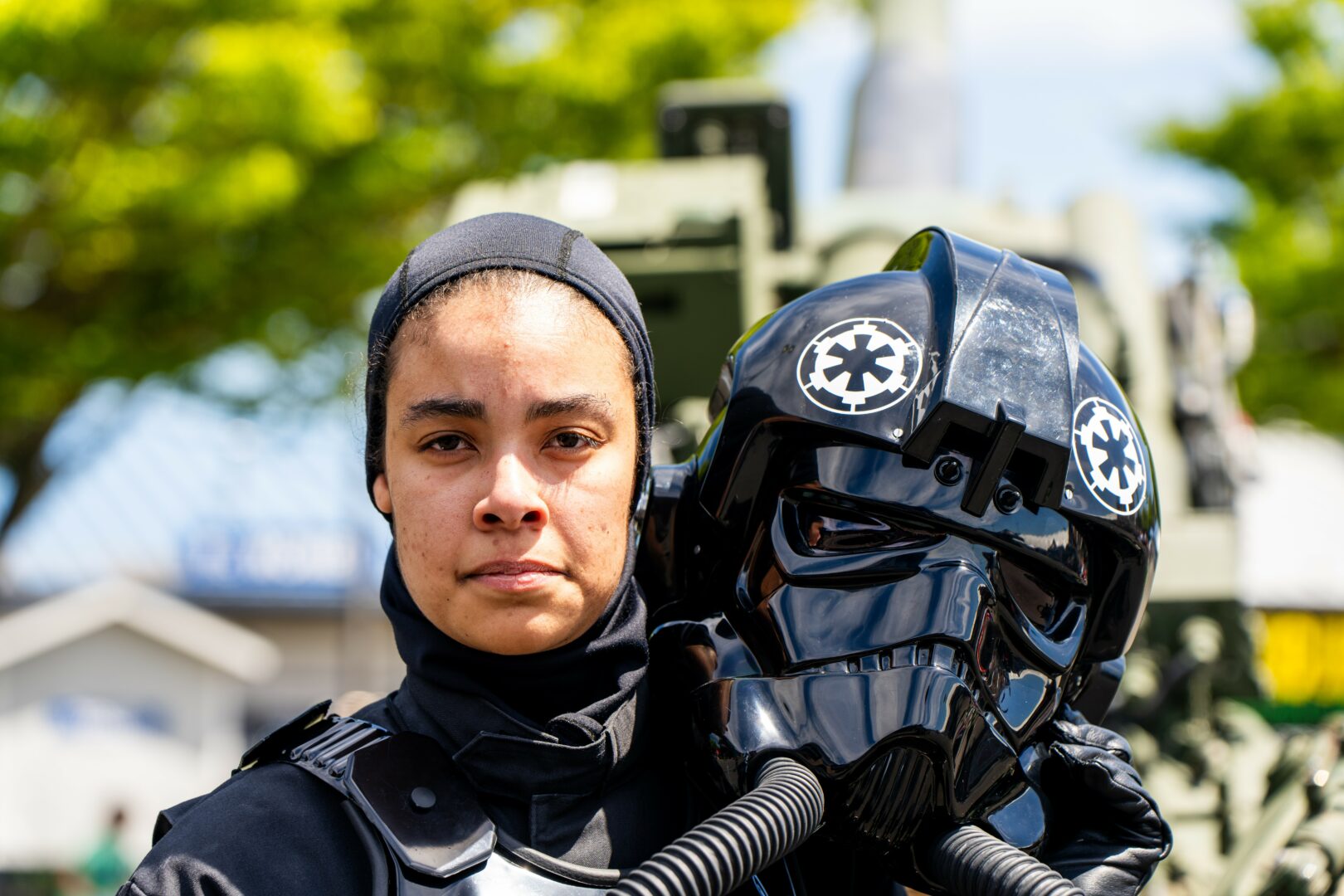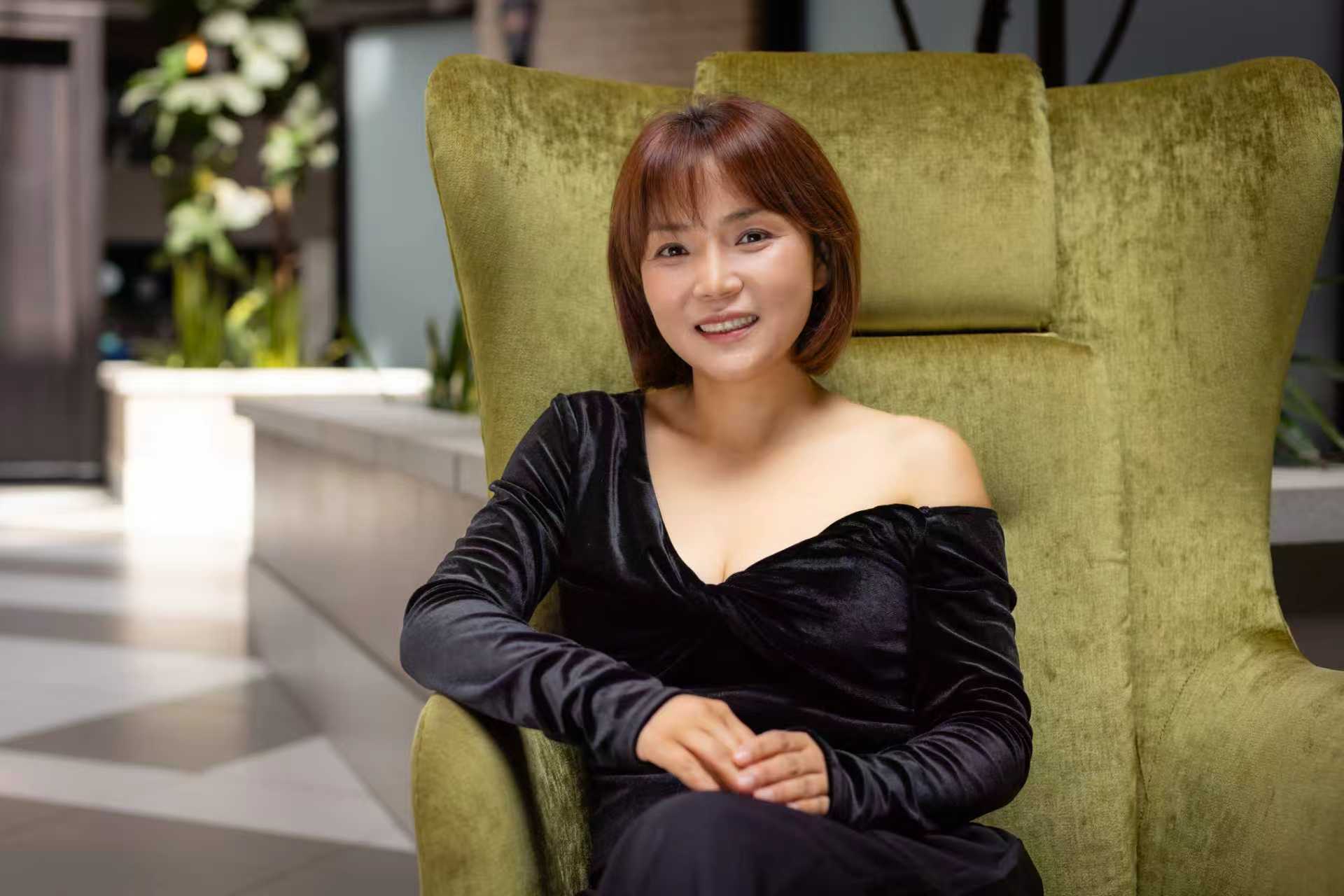Alright – so today we’ve got the honor of introducing you to Brittany Neunuebel, Ed.D.. We think you’ll enjoy our conversation, we’ve shared it below.
Alright, so we’re so thrilled to have Brittany with us today – welcome and maybe we can jump right into it with a question about one of your qualities that we most admire. How did you develop your work ethic? Where do you think you get it from?
When I think about where my work ethic comes from, I can trace it directly to two strong-willed men in my life: my grandfather and my father. Their hands, their hearts, and their unwavering drive built the foundation for everything I do today.
My grandfather started his own business with little more than determination and a need to provide for his family. With very little formal education, he became a master craftsman, the kind who could look at a block of wood and see what it wanted to become. He built kitchens that are still admired today; in fact, they’re often listed as a selling point when those homes go on the market.
When I began remodeling my own kitchen years later, I’d occasionally hear a craftsman tell me, “That can’t be done.” Each time, I’d pause and think of my grandpa. Would he have accepted that answer? If the “no” came from laziness, I moved on to someone else. If it was because the request was truly impossible, I respected it, but I never forgot that my grandfather built his life by saying yes to challenges others turned away from.
Now, at 95, my grandpa still lights up when he talks about his shop and past projects. If he could, he’d still be out there, puttering away, letting his creativity guide his hands. He’s told me more than once, “Get up off that couch and make something of yourself.” When I earned my doctorate, he admitted he didn’t really understand what that meant, but his eyes shone with pride all the same.
My father, too, has been a lifelong example of hard work and quiet generosity. He went back to college later in life to become an accountant, driven by his desire to support his family better. Numbers have always made sense to him in a way they never did to me, but what I understood was his perseverance. He climbed the ranks of his workplace, retired honorably, and then, unable to sit still, became a part-time paramedic.
He’s spent decades as a volunteer firefighter, a Mason, and a Shriner, always giving more than he takes. I’ve watched him help people anonymously, never seeking praise or recognition. When he turned 70 this year, we surprised him with a party to celebrate the life he’s quietly poured into others. Seeing his humble joy reminded me how generosity is its own reward.
Because of these two men, my grandfather’s relentless craftsmanship and my father’s steadfast service, I’ve carried forward a deep respect for hard work, purpose, and compassion. Their influence drove me to graduate early with each of my degrees, to rise in my career, and to keep finding ways to give back to my community.
Now, my husband and I strive to pass these values to our children. We bring them along to networking events, community fundraisers, and philanthropic gatherings; not just to be present, but to understand what it means to show up for others. They see us working hard, prioritizing education, and leading with kindness.
My work ethic isn’t just about effort; it’s about legacy. It’s about honoring the hands that built before me and guiding the hearts that will carry it forward.
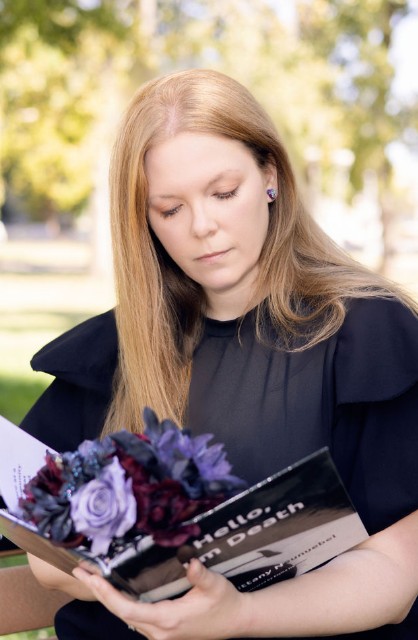
Thanks for sharing that. So, before we get any further into our conversation, can you tell our readers a bit about yourself and what you’re working on?
I’ve often been called the “Funeral Fairy Godmother,” a nickname that makes me smile because it perfectly blends the two worlds I love most: education and empathy. As the author of the children’s book Hello, I’m Death, I’ve made it my mission to help families talk about one of life’s most difficult topics with honesty, compassion, and even a little grace.
Hello, I’m Death is a gentle, conversation-starting book that helps parents and children explore what happens when someone dies. Written in a way that transcends religion and culture, it offers comfort and understanding to families navigating grief or curiosity. It was born out of my work in the funeral profession and the realization that adults often struggle to find the right words to explain death to children. I wanted to give them a starting point, a way to make those conversations meaningful rather than fearful.
By day, I work full-time at a funeral home, serving families through one of life’s hardest moments. My focus is on helping people see death as a natural part of life’s cycle. I believe that when we talk about it openly, we remove fear and replace it with connection, love, and acceptance.
Outside of work, I’m deeply involved in my community; taking on leadership roles, mentoring others, and finding ways to give back wherever I can. Whether it’s through professional service or storytelling, my goal is the same: to help people feel less afraid and more at peace with life’s inevitable transitions.
The journey since Hello, I’m Death launched has been incredibly rewarding. The book has reached readers around the world, sparking meaningful conversations and even becoming an international bestseller. I’ve been touched by the messages from parents, teachers, and funeral professionals who tell me how it opened doors for healing and understanding.
Looking ahead, I’m continuing to build on that mission with new projects that expand how we talk about death and dying, not as something dark or taboo, but as something human and universal. Whether through writing, public speaking, or community work, I want to keep reshaping the way we think about mortality and, in doing so, celebrate life itself. Stay tuned for a fiction novel to be released in 2026, too!
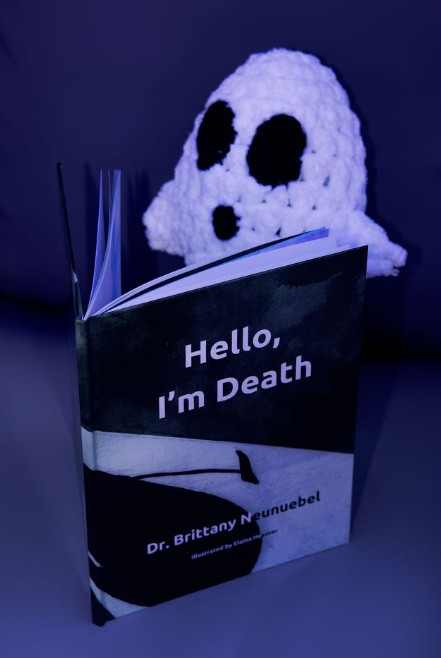
Looking back, what do you think were the three qualities, skills, or areas of knowledge that were most impactful in your journey? What advice do you have for folks who are early in their journey in terms of how they can best develop or improve on these?
When I think about the three most impactful qualities that have guided me on my journey, they all come down to this: curiosity, courage, and persistence. Each of these grew out of one deeply personal experience that became the foundation for my book Hello, I’m Death, and ultimately, for the work I do today.
The true spark for Hello, I’m Death came from my son. He was six years old when he started asking questions about death and dying, questions that many parents struggle to answer. I remember reading him a beautiful book that compared life to the cycle of a leaf: growing, changing color, and eventually falling. When I finished, I asked him what he thought. He looked at me very seriously and said, “Mommy, I’m not a leaf.”
That moment stopped me in my tracks. My son, who has level 2 autism, doesn’t connect with figurative or symbolic language; he connects with literal, tangible understanding. His words made me realize that there needed to be a resource for children like him: something clear, comforting, and straightforward that helps explain death in a way that isn’t frightening or abstract.
That night, I had a vivid dream. In it, Death wasn’t dark or grim, but kind, approachable, and even a little funny. Death had a job, went to college, and showed up at funerals not to take, but to witness the beauty in the rituals that help the living heal. I woke up, wrote down the story, and went back to sleep, thinking that was the end of it. But it wasn’t, the story wouldn’t leave me. I knew I had to share it.
Still, imposter syndrome hit hard. I had never published a book before, and the topic of death, especially for children to talk about, wasn’t exactly mainstream. But I reached out to a women’s group in my community that had recently opened a publishing arm: Little Black Book Publishing. They immediately saw the heart and purpose behind the story and signed me on. From there, I simply trusted the process with their guidance, and that decision changed my life.
Of course, the journey wasn’t without its challenges. On release day, Hello, I’m Death was on a banned book list because the concept made some uncomfortable. Some schools and libraries felt the topic was too taboo. But rather than back down, I spoke at PTO meetings, shared my mission, and kept moving forward. Today, the book is available in multiple library systems across Illinois and Missouri, it’s at funeral homes and hospice places that are handing it out to families in need around the USA and Europe, and families continue to reach out to tell me how it’s helped open meaningful conversations.
If I could offer advice to anyone early in their journey, it would be this: trust your spark. Whether your dream is literal or figurative, if it keeps tugging at you, there’s a reason. Find the right people to support you, lean on those who believe in you, and don’t let “no” be the end of your story. Every setback teaches resilience, and every challenge is proof that what you’re doing matters.
Imposter syndrome doesn’t mean you’re not capable; it means you care. Keep showing up, keep creating, and keep sharing what only you can bring into the world. Because you have beautiful meaning, and that’s worth every bit of the work it takes to bring your dream to life.
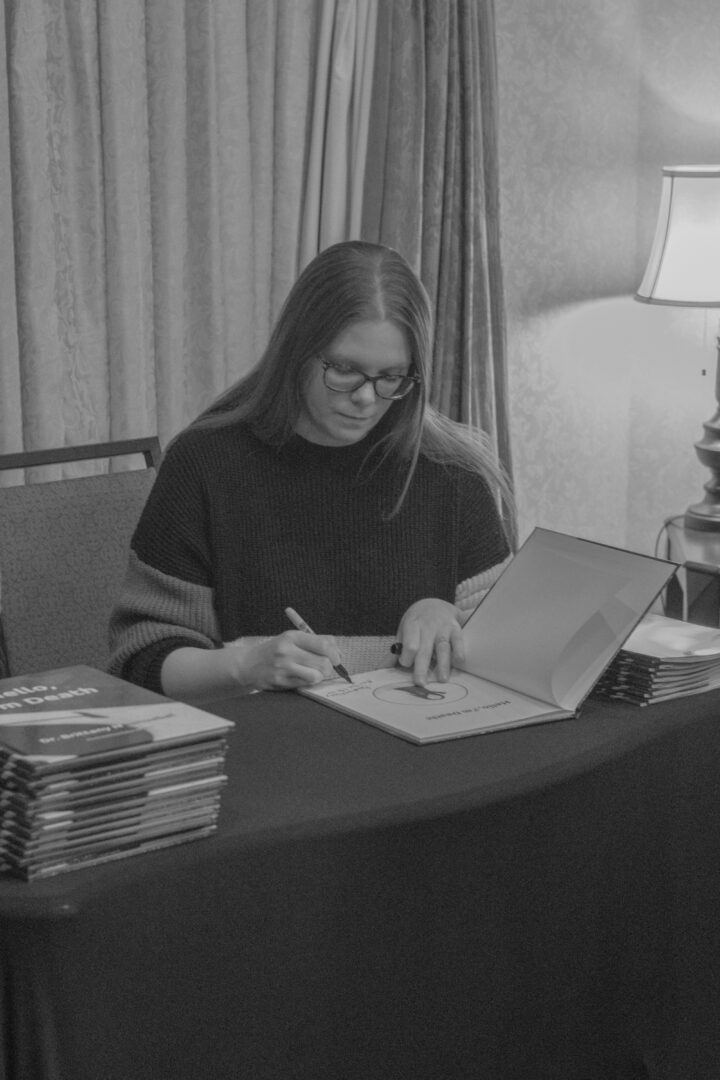
How would you spend the next decade if you somehow knew that it was your last?
As the self-proclaimed “Funeral Fairy Godmother,” I have to admit I adore this question. It’s something I think about often, not with fear, but with deep appreciation. My personal mantra has always been, “Every day is a blessing, so live it to the fullest.” None of us are guaranteed tomorrow, and that truth shapes how I live every single day.
If I knew I only had a decade left, I wouldn’t change much about how I live now. I’d continue doing the work that gives my life purpose, helping families, writing stories, and finding ways to make my corner of the world better. I’d keep giving back to my community and showing my children what it means to live with meaning and compassion.
I don’t need to be remembered by the masses; what matters most to me is that my choices leave a positive mark, whether that’s within my family or within my community. Impact doesn’t have to be grand; it just has to be good.
I would still work, still write, and still chase the small joys: laughter around the dinner table, quiet evenings with loved ones, shared stories, and simple gestures of love. I wouldn’t tell anyone that my time was limited, I’d just live with even more gratitude, cherishing every friendship and every ordinary moment as something extraordinary.
For me, the beauty of life is found not in how long we live, but in how deeply we show up while we’re here.
Contact Info:
- Instagram: https://www.instagram.com/brittany_neunuebel_author/
- Other: Where to find Hello, I’m Death
https://www.barnesandnoble.com/w/hello-im-death-brittany-neunuebel/1146804846?ean=9781962417129
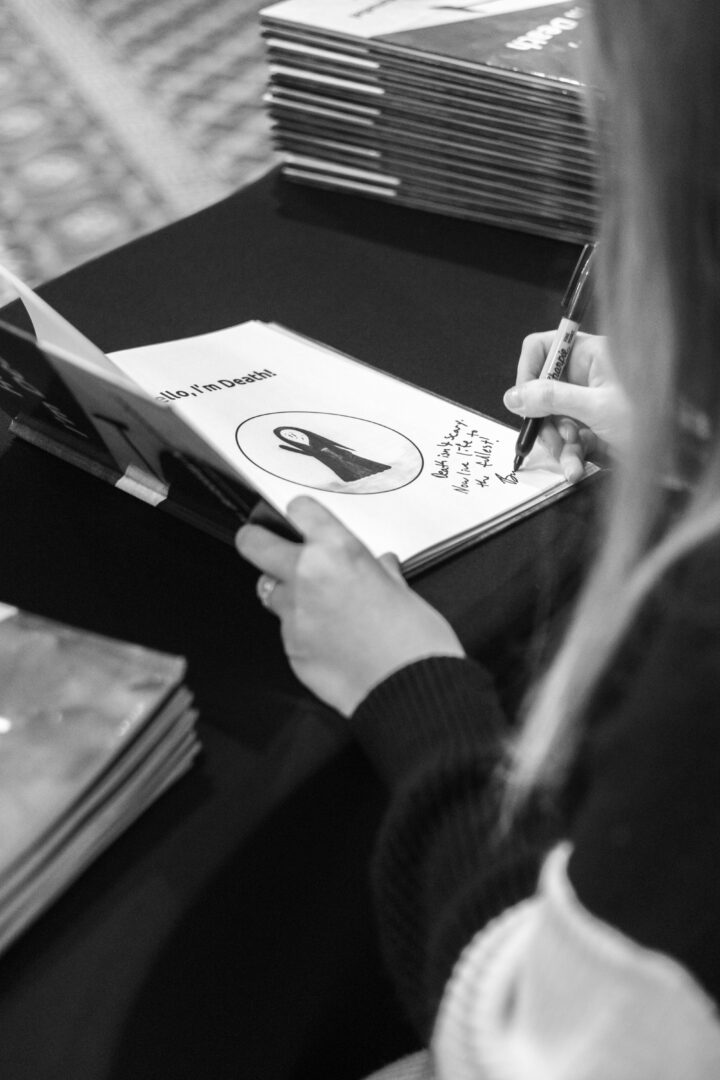
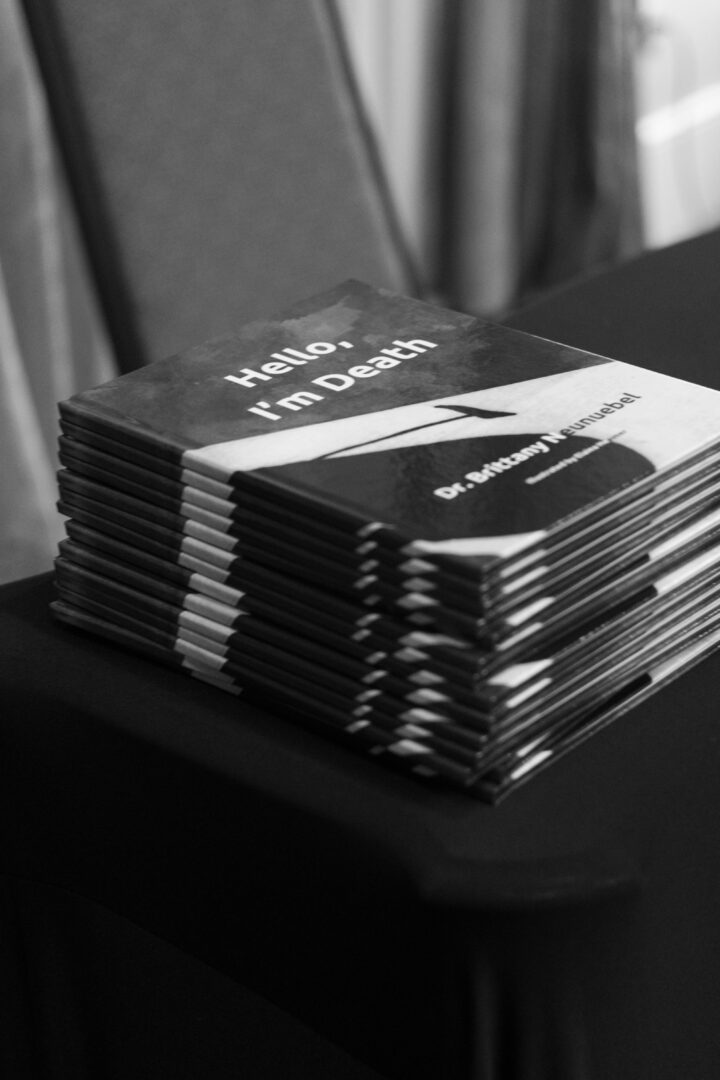
Image Credits
Stevens Photo & Video
so if you or someone you know deserves recognition please let us know here.

